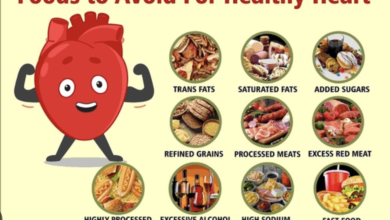What You Should Do After Unprotected Sex or Condom Failure
What to Do Following Unprotected Sex or Condom Mishaps

Unprotected sex or condom failure can be a distressing experience, but it’s essential to know what steps to take immediately afterward to protect your sexual health and minimize the risk of unintended consequences such as unplanned pregnancies or sexually transmitted infections (STIs). In this in-depth article, we will explore the necessary actions to take after such incidents, including emergency contraception, STI testing, and preventive measures for future encounters.
Emergency Contraception
One of the first and most critical steps to consider after unprotected sex or condom failure is emergency contraception. Emergency contraception, often referred to as the “morning-after pill,” is a safe and effective method to prevent pregnancy when used within a specific timeframe.
There are two types of emergency contraception available:
- Levonorgestrel (Plan B or Next Choice): This over-the-counter option is most effective when taken within 72 hours (3 days) after unprotected sex. However, it can be taken up to 120 hours (5 days) afterward. Levonorgestrel works by preventing or delaying ovulation, the release of an egg from the ovaries, thereby reducing the chances of fertilization.
- Ulipristal acetate (ella): This prescription-only option is more effective than levonorgestrel and can be taken up to 120 hours (5 days) after unprotected sex. It works by delaying ovulation and interfering with the fertilization process.
It’s crucial to consult a healthcare provider or visit a local pharmacy as soon as possible to obtain emergency contraception. The sooner you take it after the incident, the more effective it will be in preventing pregnancy.
STI Testing
Unprotected sex puts you at risk of contracting sexually transmitted infections (STIs), even if you or your partner do not display any symptoms. It is essential to get tested for STIs after such an incident to ensure early detection and treatment if necessary. Common STIs include chlamydia, gonorrhea, syphilis, HIV, and herpes.
Here’s what you should know about STI testing:
- a. Timing: It is advisable to wait a few days to a week after the incident before getting tested for STIs. Some infections may not show up on tests immediately, so consult a healthcare provider for guidance on the appropriate timing.
- Confidentiality: STI testing is typically confidential, so you don’t need to worry about your results being shared without your consent.
- Comprehensive Testing: Discuss your sexual history with your healthcare provider to determine which STIs you should be tested for. Some STIs may require different testing methods.
- Partner Notification: If you test positive for an STI, it is essential to inform your sexual partners so they can get tested and receive treatment if necessary.
Preventive Measures
After addressing the immediate concerns, consider taking the following preventive measures:
- Contraception: If you are not ready for parenthood, consider a more reliable form of contraception for future sexual encounters. Options include birth control pills, intrauterine devices (IUDs), condoms, or contraceptive implants.
- Regular STI Testing: Make STI testing a routine part of your sexual healthcare, especially if you engage in unprotected sex or have multiple sexual partners.
- Communication: Open and honest communication with your sexual partners is crucial. Discuss your sexual history, STI status, and contraceptive preferences to make informed decisions together.
- Get Vaccinated: Some STIs, such as HPV and hepatitis B, can be prevented through vaccination. Consult your healthcare provider about which vaccines are suitable for you.
Conclusion
Unprotected sex or condom failure can happen to anyone, but knowing what steps to take afterward is essential to protect your sexual health. Emergency contraception, STI testing, and preventive measures for future encounters are all crucial components of post-exposure care. Remember that consulting a healthcare provider is the best way to ensure you receive the appropriate guidance and care tailored to your specific situation. Prioritizing your sexual health is a responsible and empowering choice that can lead to safer and more informed sexual experiences.

